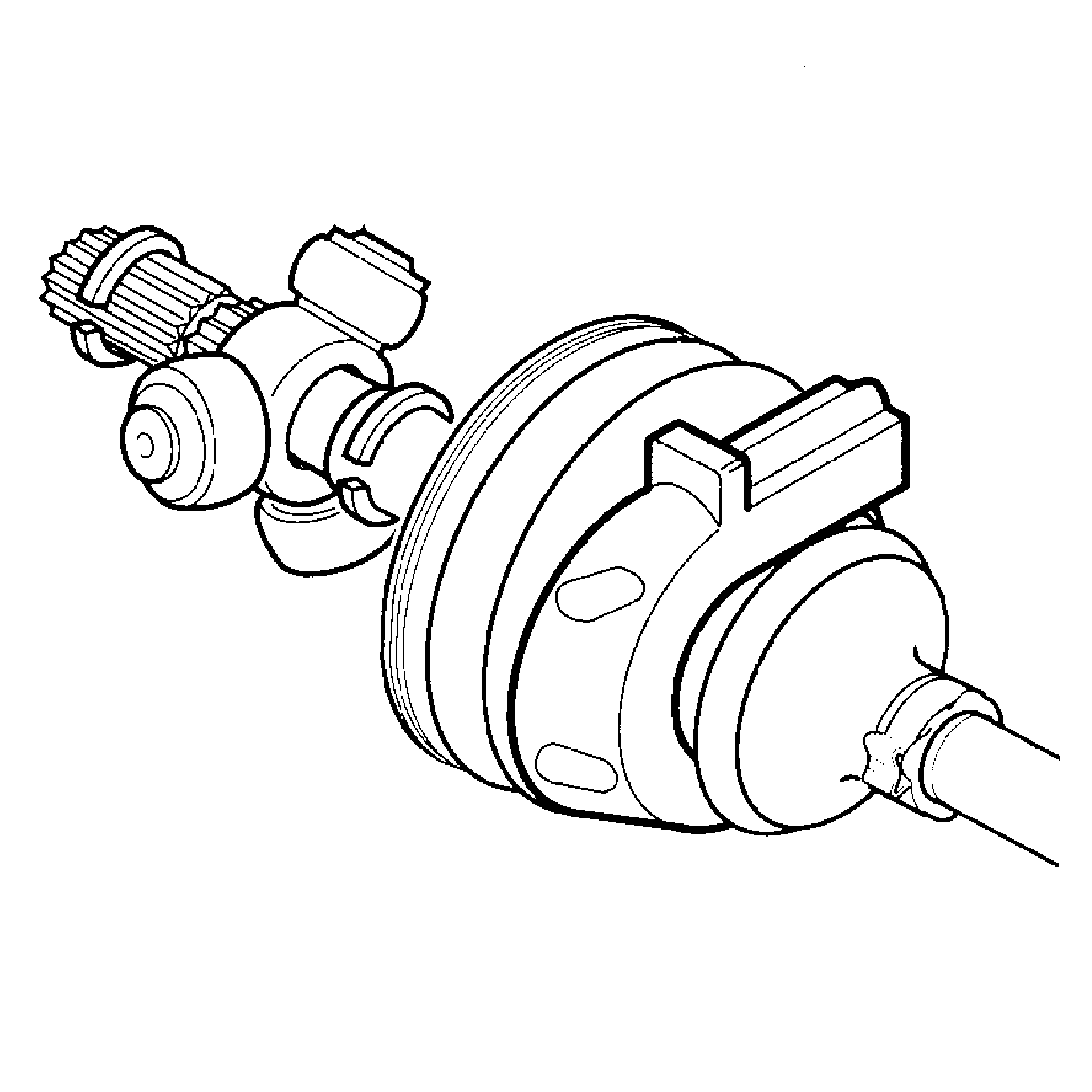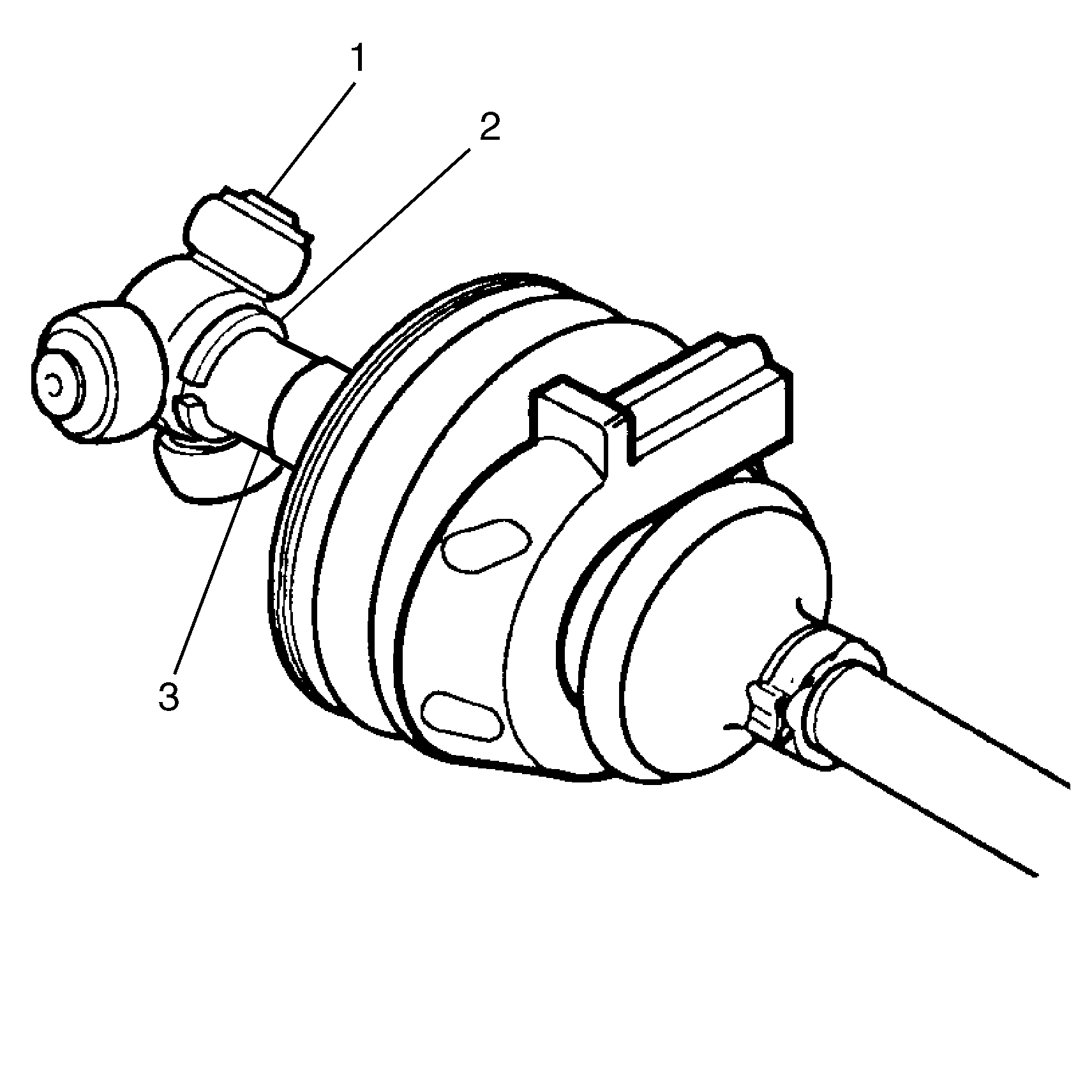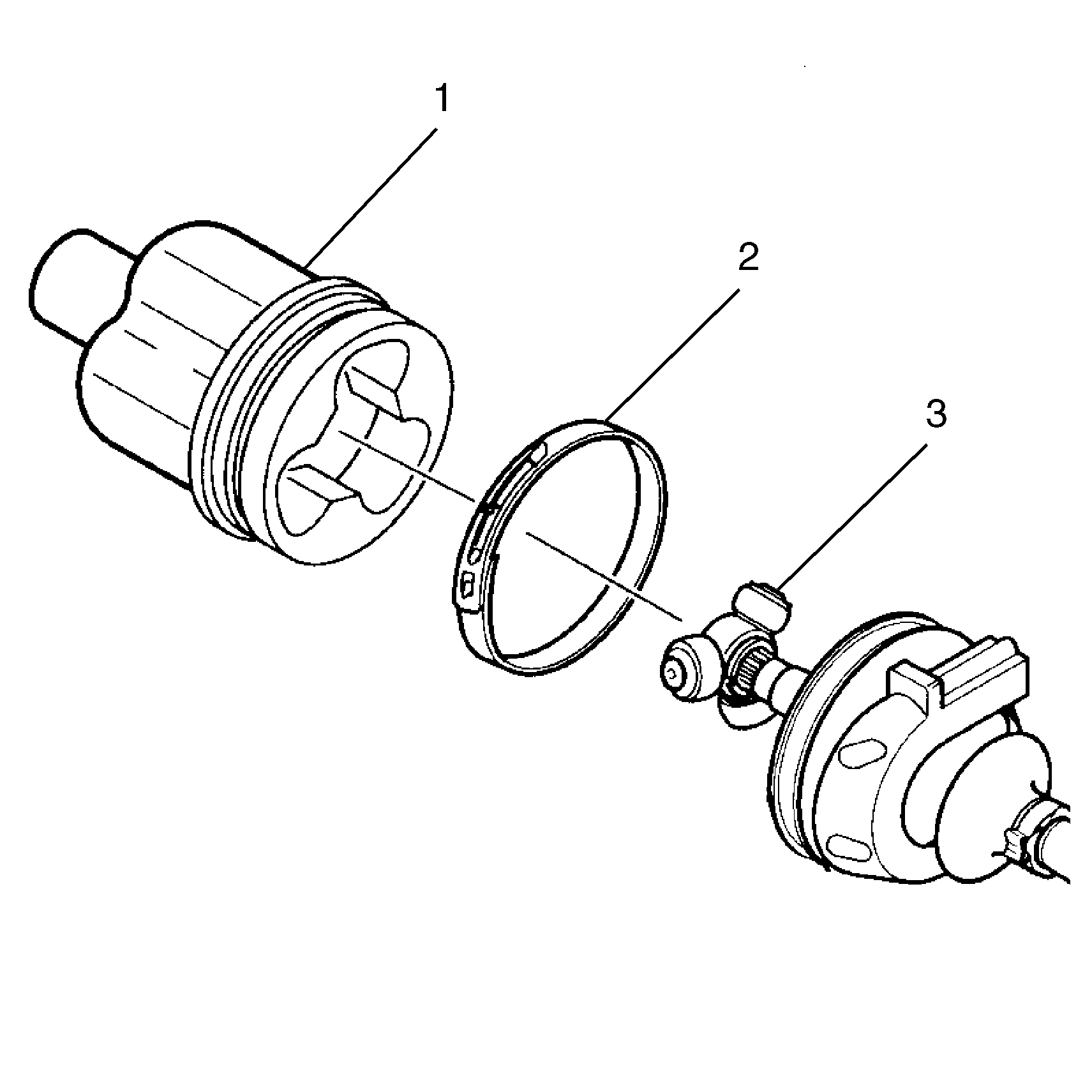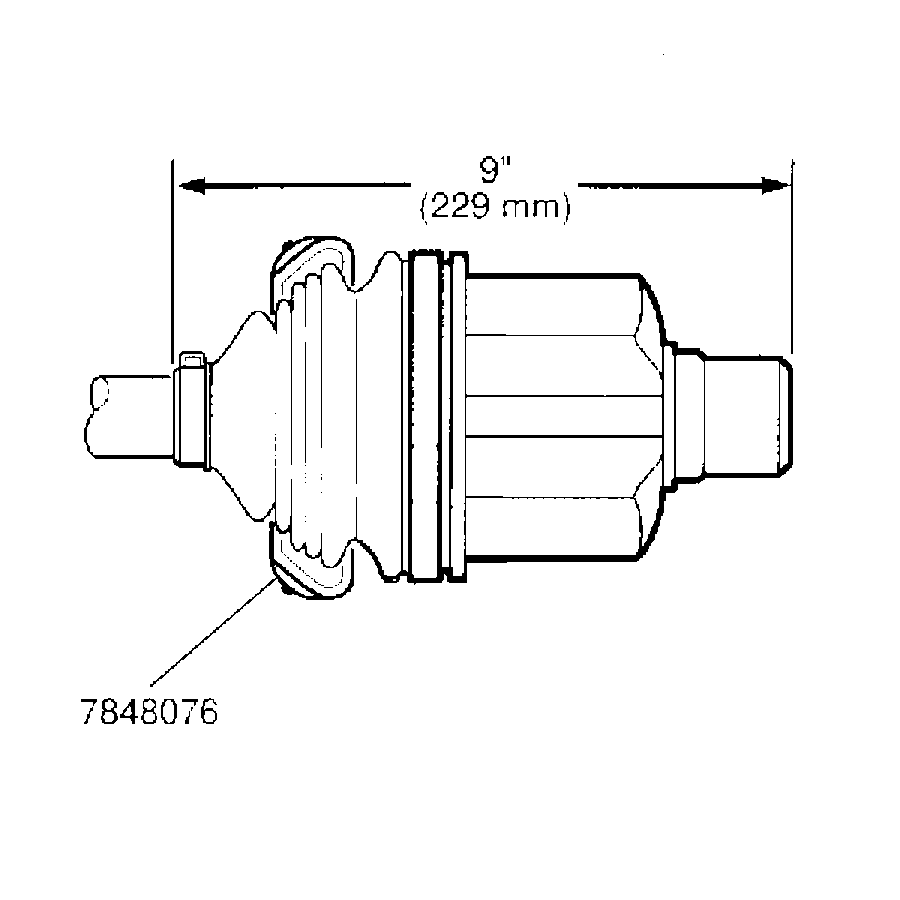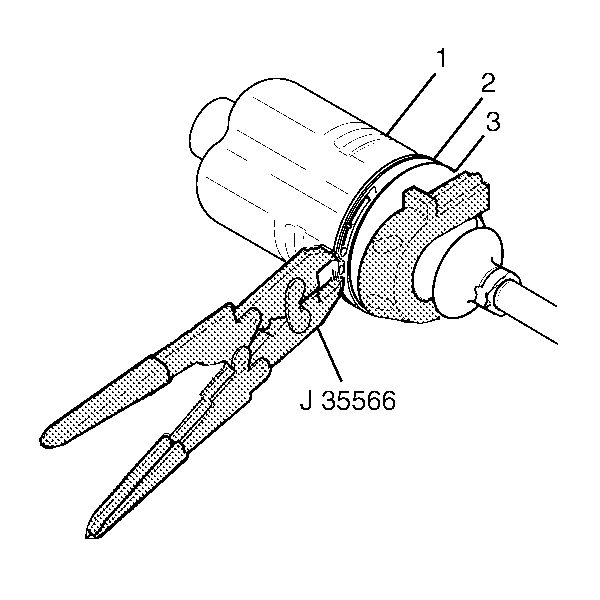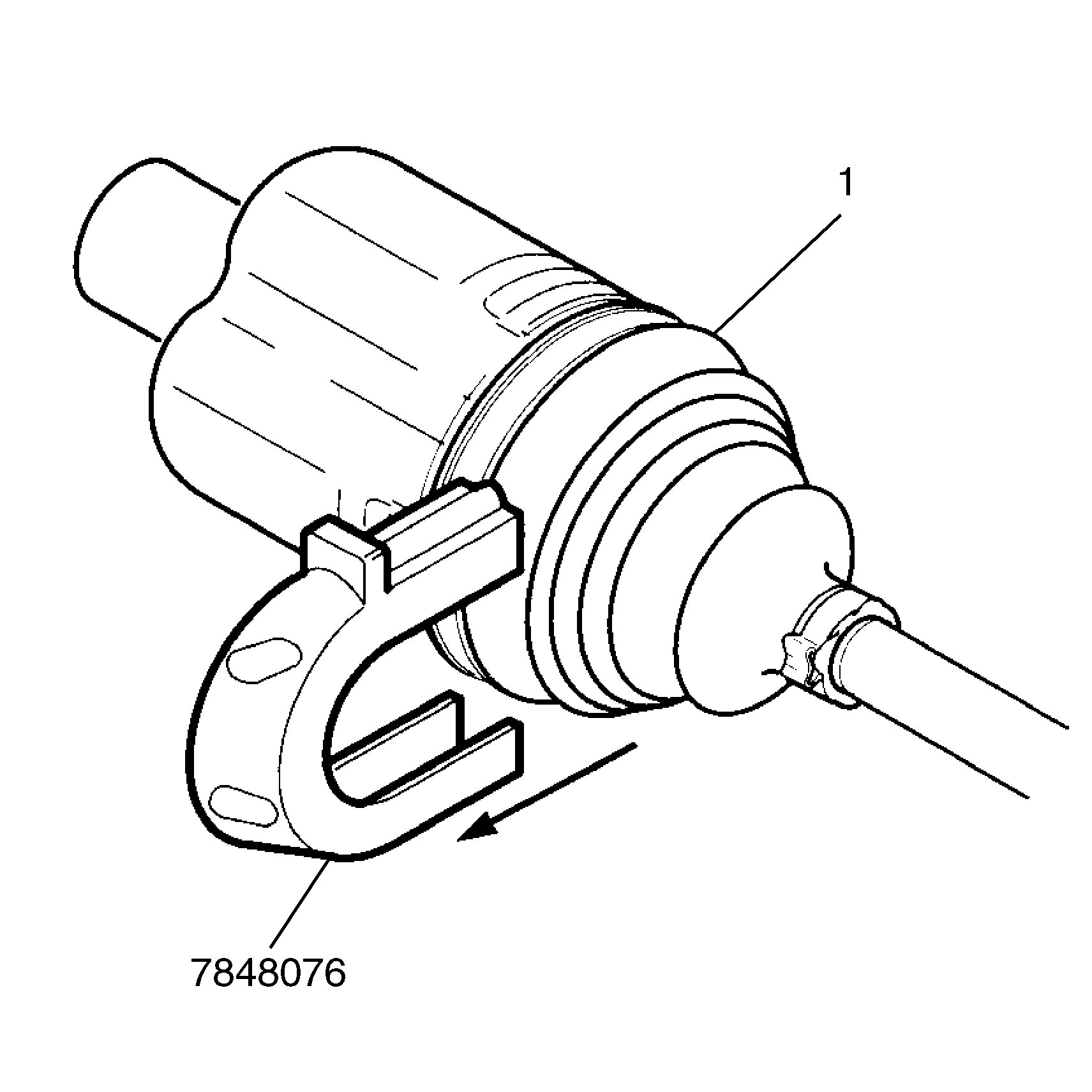Tools Required
| • | J 8059 Snap Ring Pliers (Parallel Jaw) |
| • | J 35910 Drive Axle Seal Clamp Pliers |
| • | J 35566 Drive Axle Seal Clamp Pliers |
Disassembly Procedure
- Remove the large boot clamp (3) from the tripot boot (4) with side cutters.
- Remove the tripot housing (1) and bushing (2) from the halfshaft bar (5). Wipe the grease off of the tripot assembly roller bearings and housing.
- Remove bushing (2) from tripot housing (1) and discard bushing.
- Degrease the housing (1) thoroughly. Use 320 grit 3M cloth (or equivalent) to remove any evident corrosion in the transmission booting surface.
- Allow the housing (1) to dry prior to assembly.
- Cut the small boot clamp from the halfshaft bar end of the tripot boot, using side cutters.
- Slide the tripot boot up the halfshaft bar (1), away from the tripot spider assembly toward the outboard (CV joint assembly) end of the halfshaft bar.
- Remove the spacer ring (1), spider assembly (2), spacer ring (3), and tripot boot (4). Discard the boot and rings.
- Clean the halfshaft bar (5). Use a wire brush in order to remove any rust in the boot mounting area (grooves).
- Inspect the needle rollers, needle bearings, and trunnion. Check the tripot housing for unusual wear, cracks, or other damage. Replace any damaged parts with the appropriate kit.
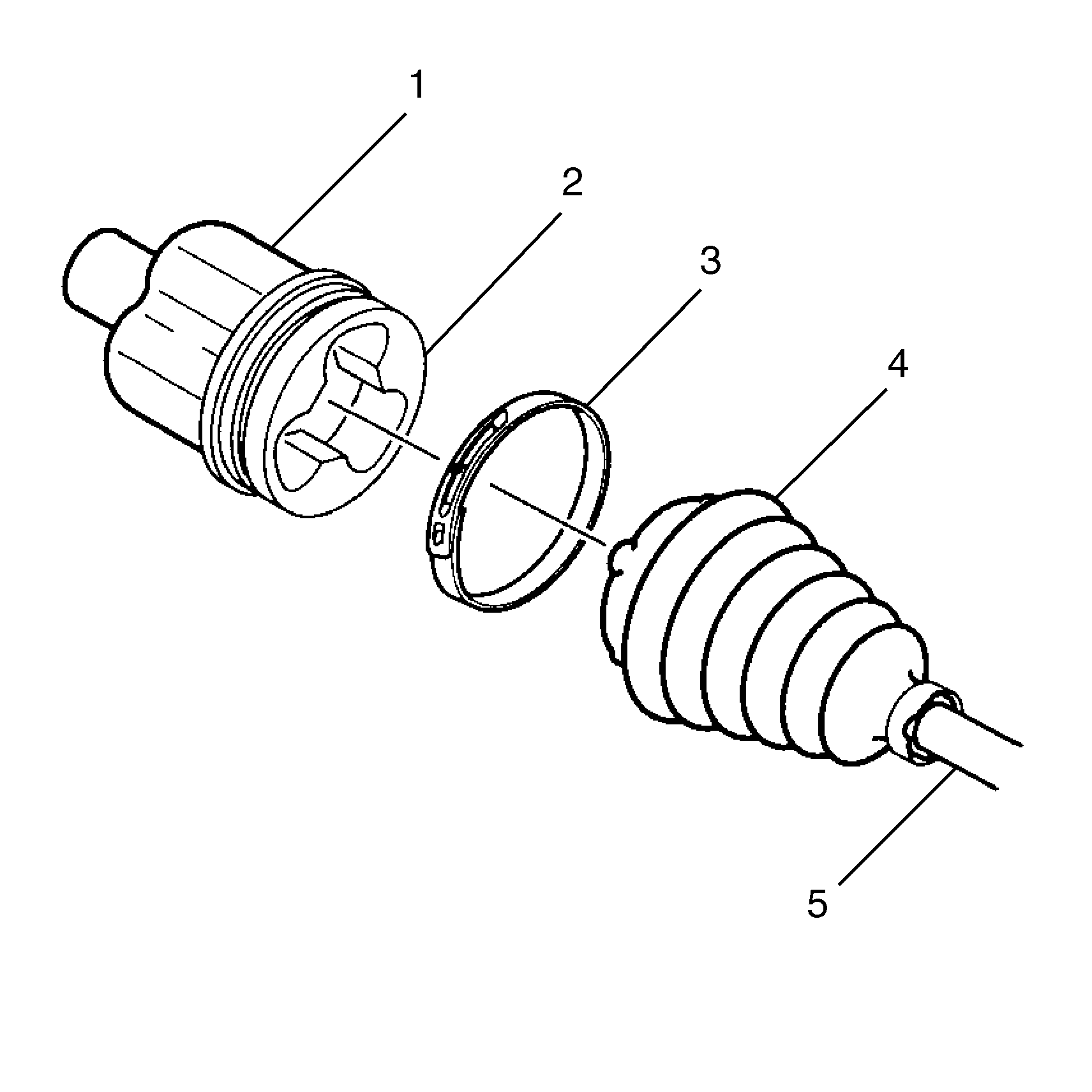
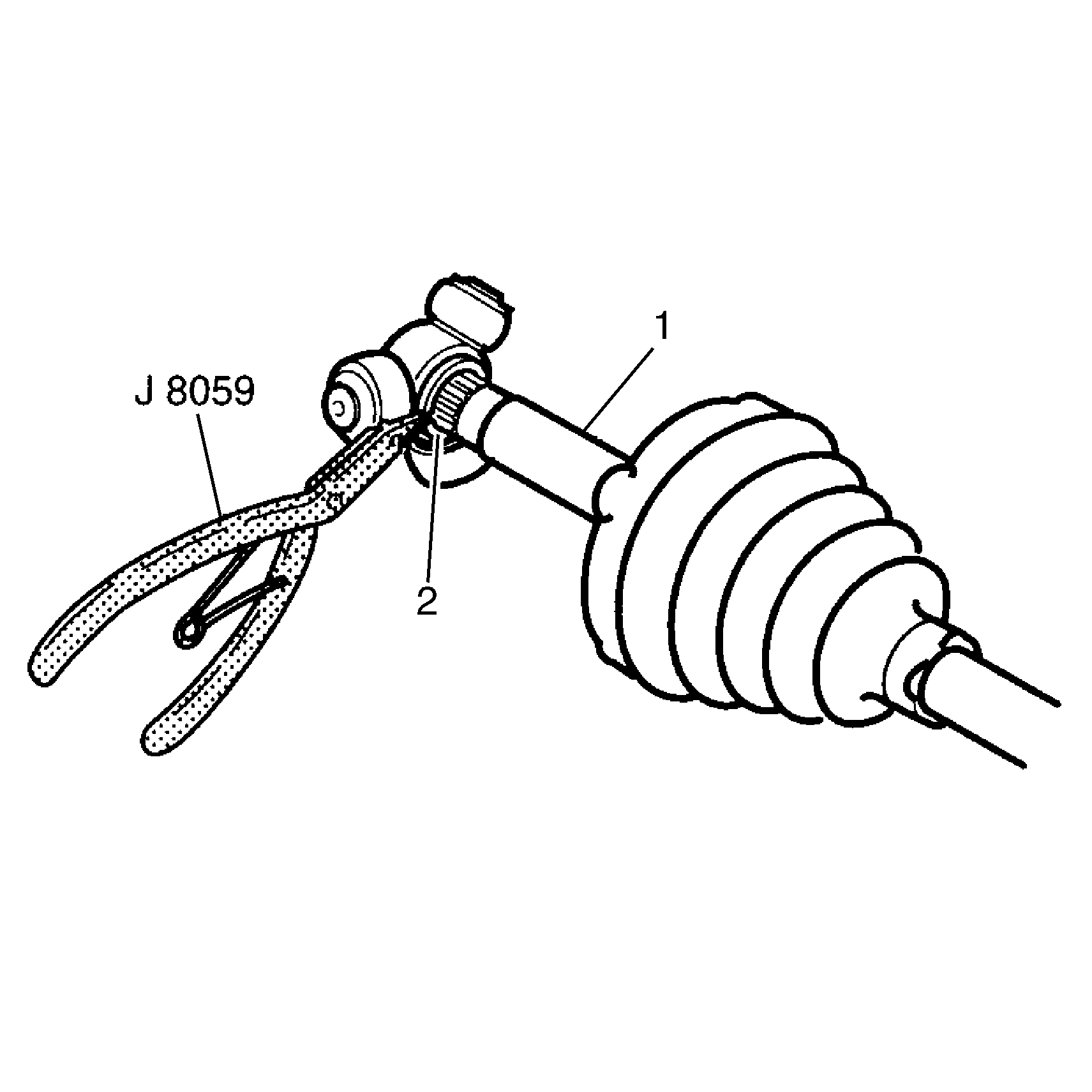
Important: Handle the tripot spider assembly with care. Tripot balls and needle rollers may separate from the spider trunnion if the tripot balls and needle rollers are not handled carefully.
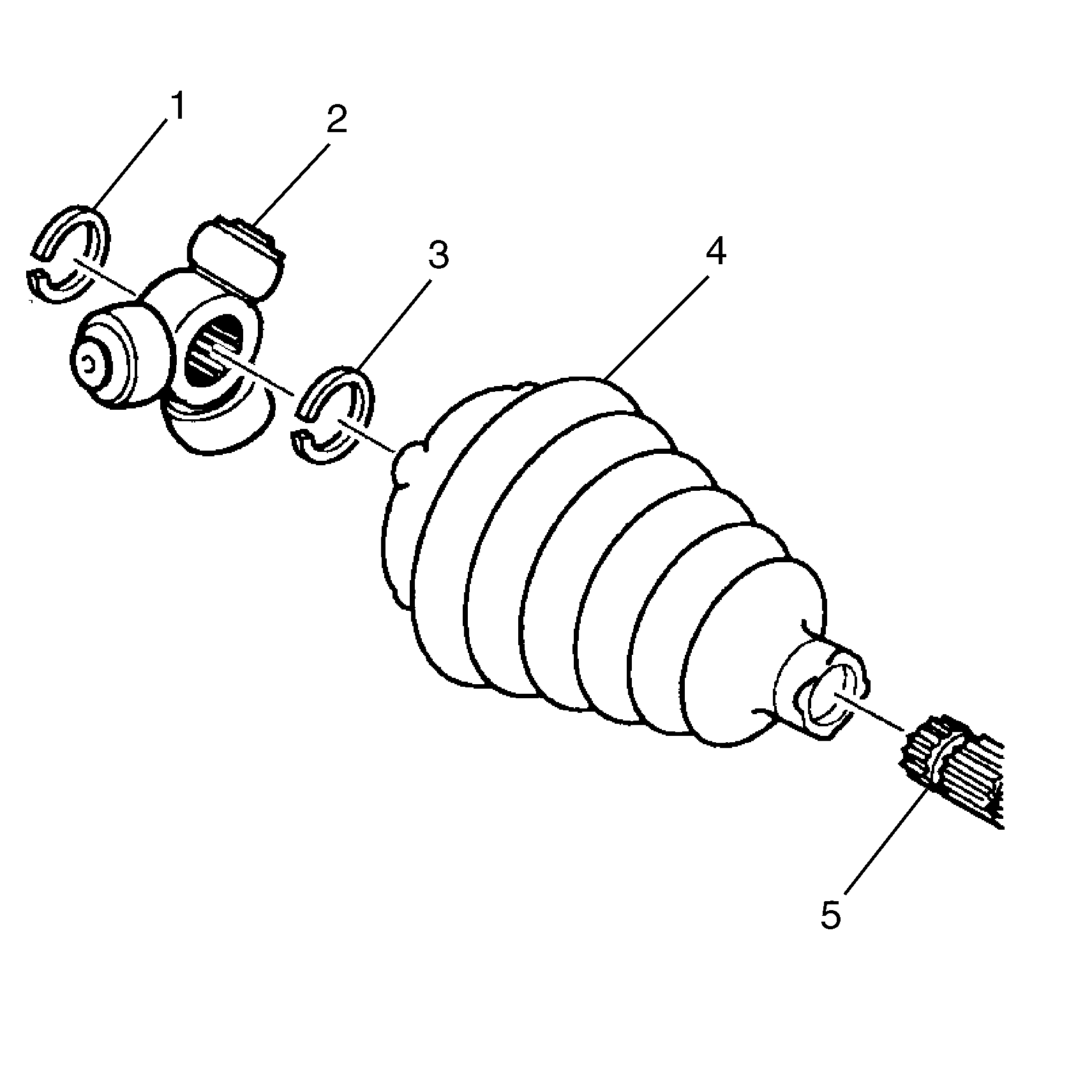
Assembly Procedure
- Place the new small boot clamp (2) onto the small end of the joint boot (1).
- Slide the tripot boot (1) and small boot clamp (2) into the proper position on the halfshaft bar.
- Position the small end of the joint boot (1) into the joint boot groove (3) on the halfshaft bar.
- Secure the small boot clamp (1) using J 35910 (or equivalent), a breaker bar, and a torque wrench.
- Install the convolute retainer over the inboard boot, capturing 3 convolutions.
- Install the first spacer ring and tripot spider assembly onto the halfshaft bar.
- Move the spider spacer ring (2) back toward the end of the halfshaft bar. Seat the spider spacer ring (2) in the spacer ring groove. Make sure the spider spacer ring is fully seated.
- Pack the tripot boot and the tripot housing with the grease supplied in the kit. The amount of grease supplied in this kit has been pre-measured for this application.
- Place the large retaining clamp (2) on the boot.
- Install the new bushing onto the housing (1).
- Place the housing (1) over the spider assembly (3).
- Install the boot onto the housing (1).
- Check the inboard stroke position.
- Secure the large retaining clamp (2) and the boot (3) to the housing (1) using J 35566 .
- Remove the convolute retainer from the boot (1).
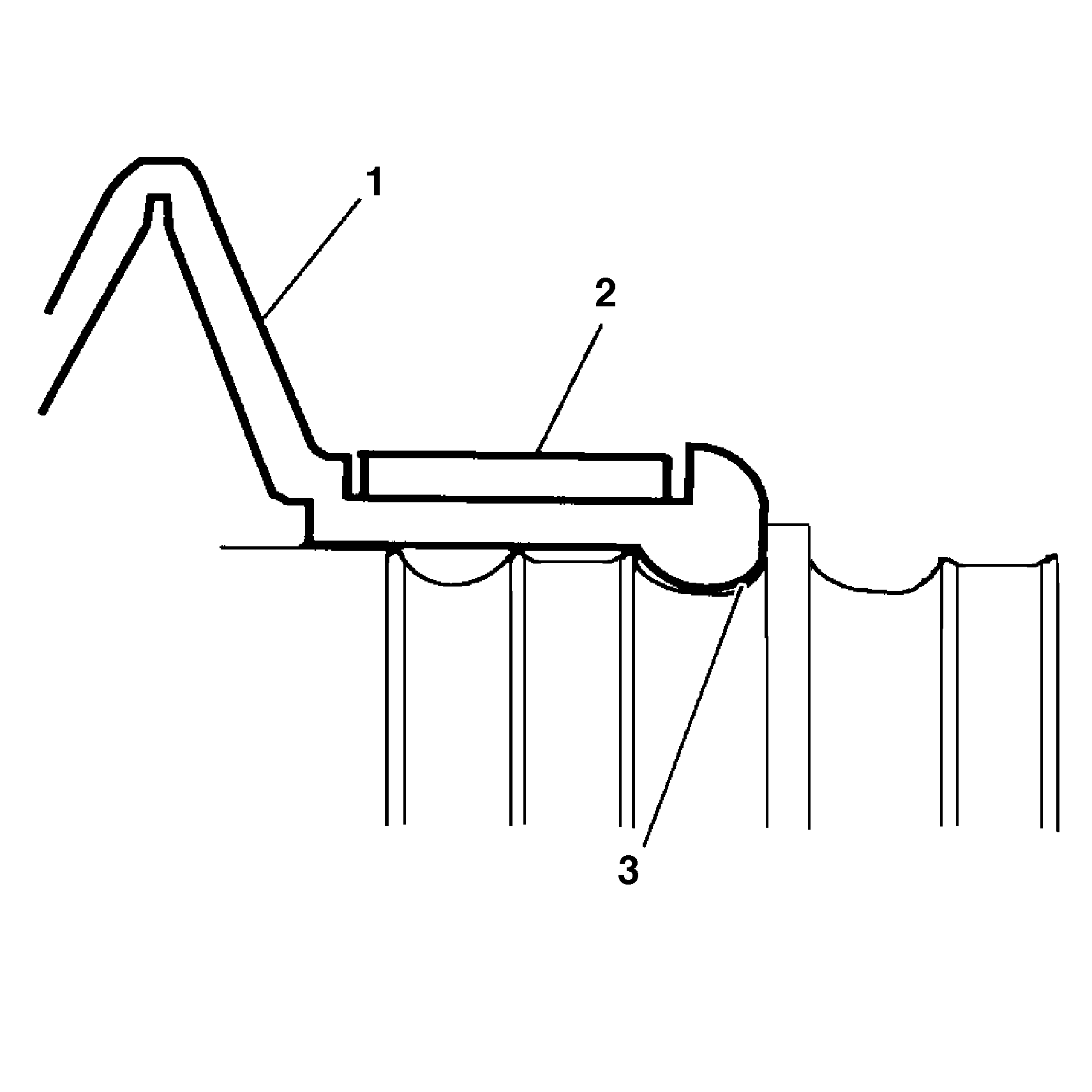
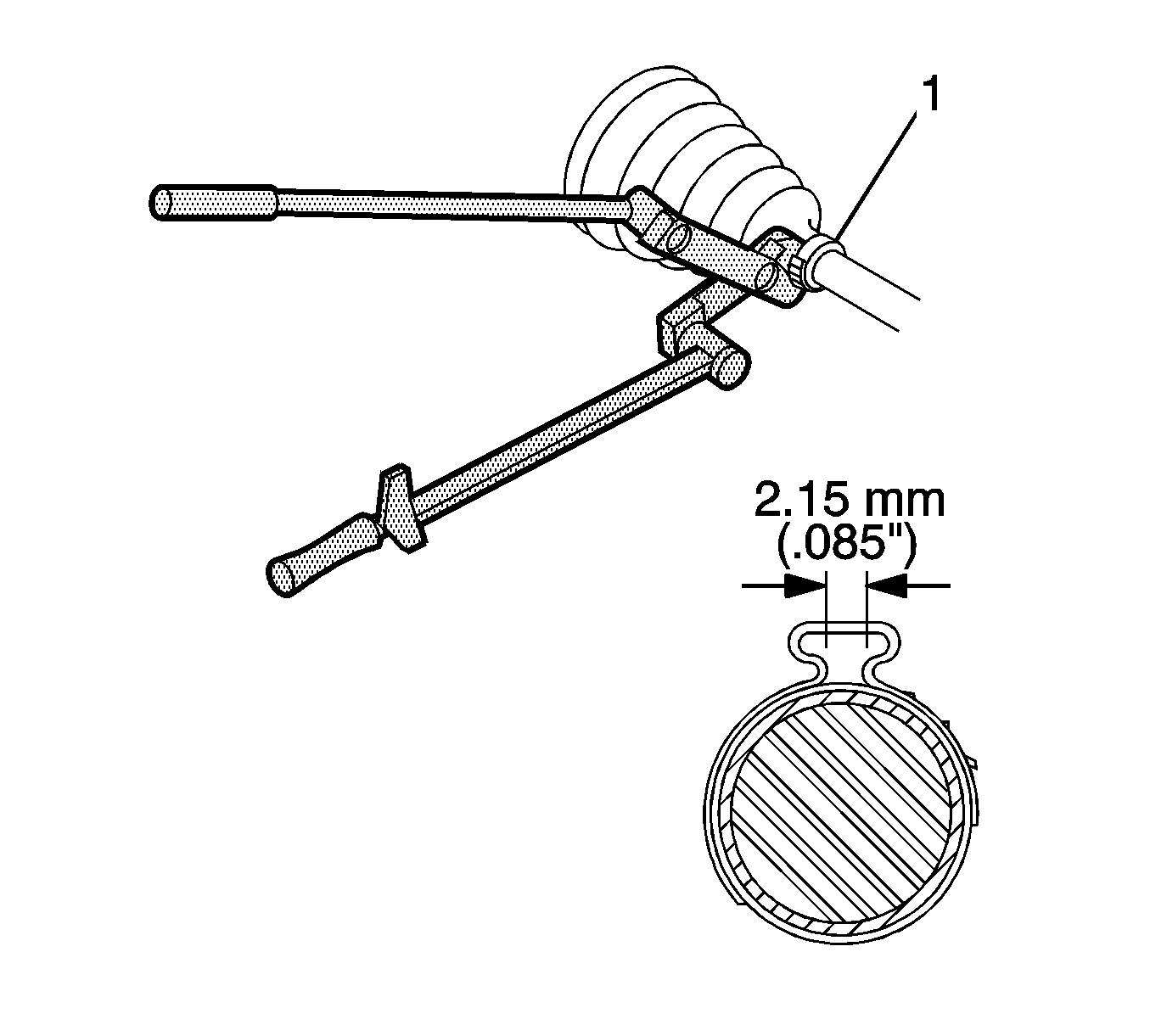
Notice: Use the correct fastener in the correct location. Replacement fasteners must be the correct part number for that application. Fasteners requiring replacement or fasteners requiring the use of thread locking compound or sealant are identified in the service procedure. Do not use paints, lubricants, or corrosion inhibitors on fasteners or fastener joint surfaces unless specified. These coatings affect fastener torque and joint clamping force and may damage the fastener. Use the correct tightening sequence and specifications when installing fasteners in order to avoid damage to parts and systems.
Tighten
Torque the small boot clamp (1) to 136 N·m (100 lb ft).
Check the gap dimension on the clamp ear.
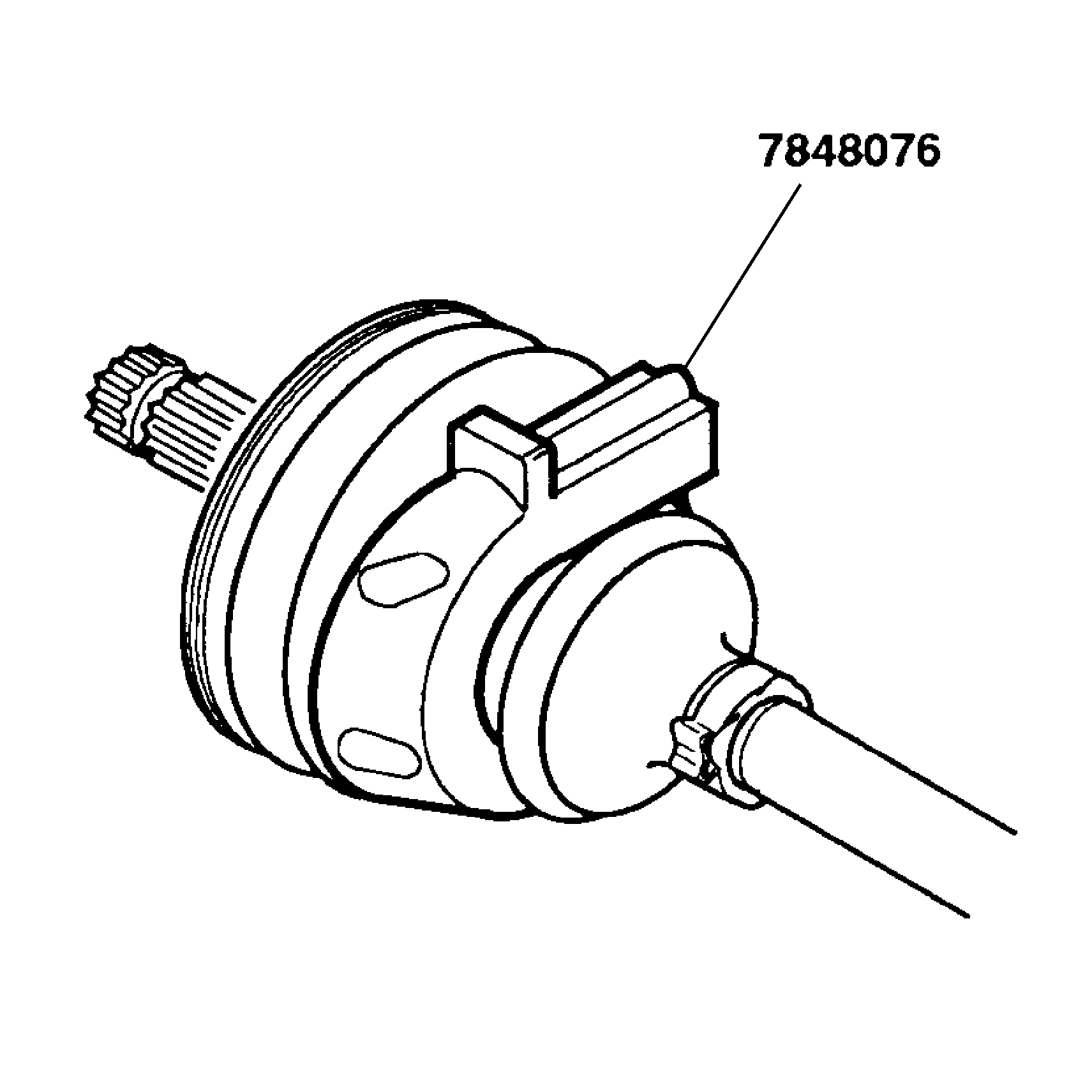
Important: Assemble the joint with the convolute retainer in the correct position. The boot will be damaged if the joint assembly does not meet the specified dimension.
